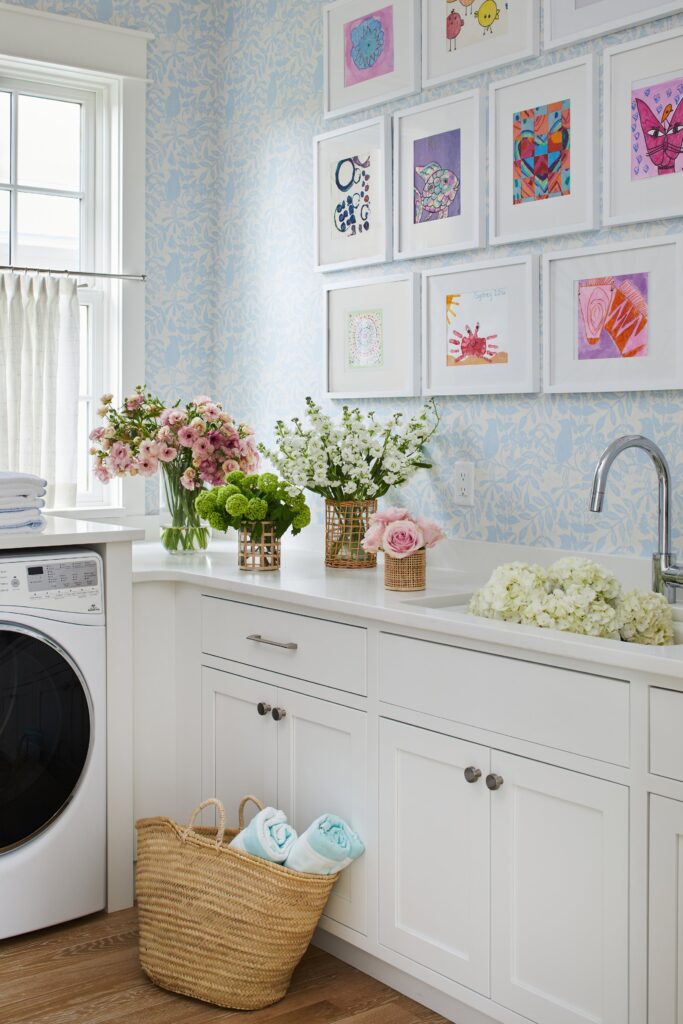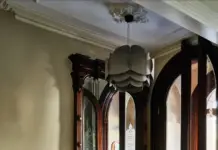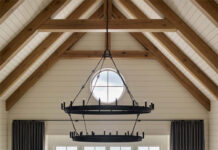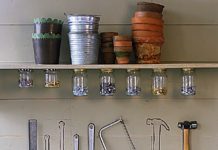From the drip, drip, drip of a leaky faucet to a clogged toilet, plumbing issues can cause major headaches. But many problems are easy to diagnose and fix.
The dreaded clogged sink is one of the most common reasons homeowners call in a plumbing contractor. But it’s also a problem that most people can solve on their own with the help of a plunger.

Used with permission from Kara Miller Photos: Brantley Photography
Clogged Sink
Clogged drains are a common plumbing problem and can be extremely frustrating. They can make a sink or tub unusable and cause water to back into the home. While a serious clog may require the help of a plumber, there are some steps you can take to solve the issue yourself.
Kitchen sink clogs are often caused by food washed down the drain. The catch under your sink, the P- or J-trap, can become trapped with food debris over time. To fix this, remove the pop-up and clean it out.
Pour a cup of baking soda and then a cup of white vinegar down the drain. The fizzing reaction frequently clears light obstructions. Run some hot water down the drain to clear any residual solution once the combination has dissolved. Additionally, it can assist in removing mineral buildup or soap scum. You might need a wire drain snake if these suggestions don’t clear the blockage.

Used with permission from Kara Miller Photos: Brantley Photography
Leaky Pipes
Pipes in your home can develop leaks for some reasons. The rubber seals can degrade over time, causing cracks or holes to form. The pipes can also corrode, especially if they are older or made of copper or galvanized steel. Other causes include extreme changes in temperature, foundation problems, or water pressure that is too high.
If leaks are not immediately fixed, substantial harm may result. They may cause wallpaper to peel, mold to develop, and water stains. Additionally, the leaking water may result in higher utility costs.
If you notice a leak, shut off your water and find the source of the leak. If it is a large leak, try using a slip coupling (look for one that matches the size and type of your pipe) to temporarily fix the problem until a plumber can come in and replace the old pipe or make a permanent repair. You can use epoxy putty or a pipe clamp to stop the water flow for smaller leaks.

Used with permission from Kara Miller Photos: Brantley Photography
Broken Water Main
While the most obvious sign of a broken water main is water spewing out of your front yard, there are other clues you should look out for. These include puddles in your front yard, low water pressure, and an unpleasant odor.
Other factors that can cause water line breaks include corrosion, soil erosion, and extreme temperatures. Freezing and boiling temperatures can cause the ground to shift around your water line, which could shear it.
Water lines are steel or plastic pipes that connect your home to the city’s water supply. Local utilities manage these and can break due to age or severe weather conditions. If your water line breaks, shut off your water supply valve and contact a plumber immediately. Residents can also report broken water lines by calling their utility’s hotline or using an online reporting tool. Resident reports are often the first to be heard by the water company, which can speed up repairs.

Used with permission from Kara Miller Photos: Brantley Photography
Clogged Sewer
A clogged sewer line is the most severe of all plumbing problems. This clog is not usually something you can fix on your own because the drain lines are in the ground and require special equipment and professional know-how.
Shifts in the soil that might cause the pipe to droop and trap debris are just one of the many factors that can result in a clogged sewage line. Tampons, diapers, face tissues, and paper towels are foreign things that can block pipes. Another significant offender is grease, which solidifies as it cools and builds up in the pipes over time. For this reason, it’s important to refrain from pouring grease down your drains and to dispose of leftover grease correctly.
A clogged sewer line can cause wastewater to overflow into your sinks, tubs, and toilets. The resulting dirty water will emit a foul odor and cause your fixtures to drain slowly. Thanks to Minyard Plumbing for consulting.






















